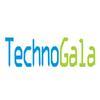
As per noted MIT inventor and self proclaimed maverick, Jose Gomez Marquez points out, the future of medical tech is witnessed in the developing world itself. This comes complete with some findings at dollar stores, Lego bricks, and cheap mobile phones. This theory is steadily being accepted as a mainstream philosophy for healthcare. What this basically refers to is the steady overwhelming of conventional health care with technologies and methods that are fast and cheap.
Health care had always kept such technologies and methodologies successfully at arm’s length over the decades that passed. However, newer mechanisms are slowly making their mark including BYOD (bring your own device) tablets in operating theaters and even dongles and apps that transform any smart phone into a fitting device. Even 3D printed skulls or skullcaps for head repair are now available largely. All one needs to do is receive measurements through a scan, use a cad-cam program or software, tap Cmd-P and a new skull top is readied for implantation! This is astonishing and yet cannot be ignored in recent times and has a huge bearing on the future of healthcare and our perceptions revolving around it as a whole.
Each and every category that is newly introduced at Dollar Stores or similar outlets or even apps and other tech tools, will steadily revolutionize the entire healthcare segment. These methodologies will cost less and will work considerably faster. How will this pan out? Will such technologies really work to change the very nature of mainstream healthcare as we know it? However, the answer lies in the economics working behind the same. With a fee for service system in place through insurance providers, payment is provided for complex stuff that might solve problems instead of solving them directly ourselves.
This is the direct ecosystem that is sought to be changed by dollar stores and smartphones among other technological and social elements. This may well strike out at the heart of modern day healthcare in more ways than one. With computers, healthcare has anyway been democratized to a large extent. A computer program can actually scan and detect tumors similar to a radiologist and even then, it negates scope for errors or judgment issues. Technology will cut down on unnecessary tests, biopsies and the like! This will save thousands of dollars annually. Yes, the healthcare industry might not be as profitable as usually perceived by cynics but the revolution will make it even more accessible to the mass. As a result, the government can save and deploy money towards the right issues in healthcare instead of blindly spending public money needlessly.
The ivory towers of contemporary healthcare are set to be broken by dollar stores and smartphones among other tools and this generation is set to witness and be part of a major revolution!

